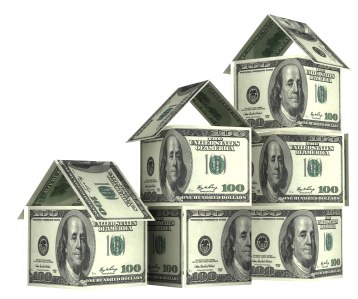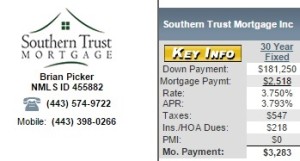
Real estate investing has been a long term way to increase your wealth according to hundreds of investment gurus. Stocks, bonds….and real estate. Real estate is not a liquid asset, but it’s a long term investment and a way to keep up with inflation. Add to that some monthly cash flow and you are looking at a solid investment. I’m not a CPA so I can’t give you tax advice, but I will tell you that condo/HOA fees are also deductible in the state of Virginia in addition to your regular deductions (taxes, insurance, interest, etc).
Now the question becomes: how do you properly evaluate an investment property?
Everyone will give you different answers based on their own financial situations. Some people want to deduct the loss, so they don’t care if the rent covers the mortgage. I personally believe that unless you’re breaking even or have positive cash flow each month, I wouldn’t bother buying it. The magic number for investors seems to be a 6% return for a property to be an excellent investment.
Using the cashflow method, you take the monthly yield (let’s say positive cash flow of $1,000 per month), multiply by 12 to calculate your annual income, divide by your initial investment to calculate the annual ROI.
Let’s use this townhouse in 22207, and assume you buy it for $725,000.
For an investment, they want to see 25% down, that’s about $180,000.
Assume the rent for this property is $3,500/mo.

If you use the mortgage payment of $2,518 in this example, that’s a return of 6.5%
If you use the total payment including Principle, Interest, Taxes, Insurance, HOA dues, the return is only 1.4%
It’s really a matter of how you look at it. In this scenario, I’d say if you can get the property for $700k, I would buy it. Anything over $725k, doesn’t make any sense. You’ll also have vacancy times which will eat into any cash flow you’ll have.
If you’re considering buying an investment property, let’s meet for coffee and talk about your short and long terms and how we can get you there.